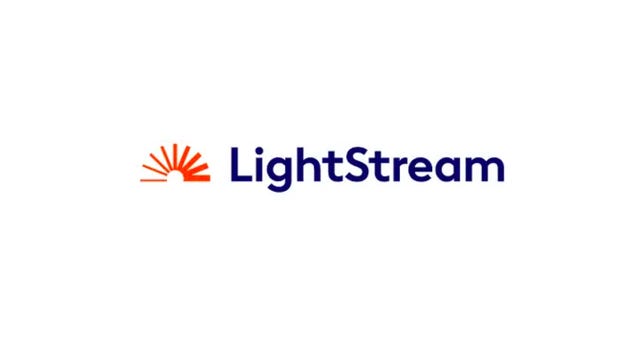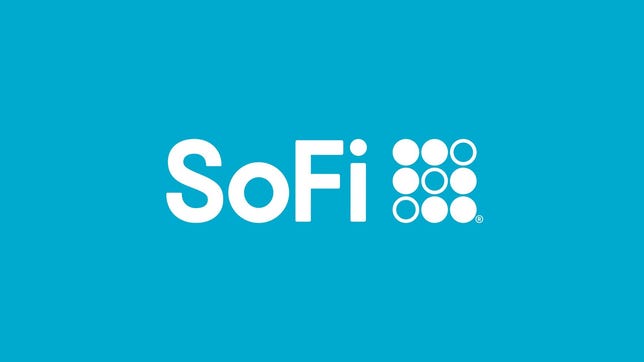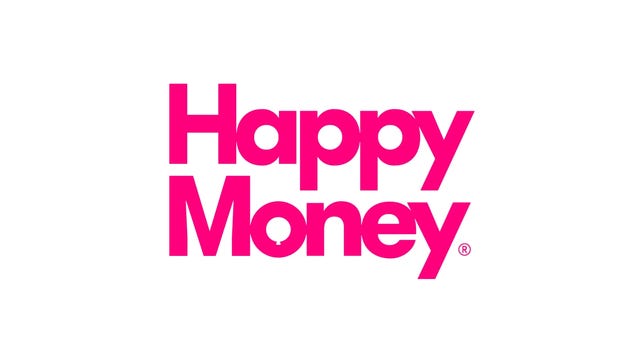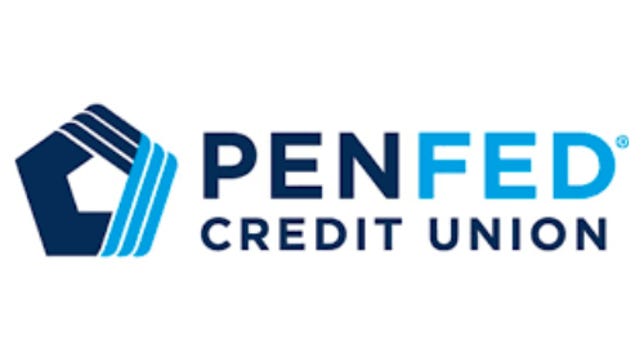With personal loan rates rising in response to the Federal Reserve raising rates several times last year, shopping around for the lowest rate could help you save hundreds or thousands in interest over the lifetime of your loan.
We’ve evaluated major lenders and highlighted the best options below. We’ll update this list regularly as terms change and new loan products are released. Note that all of the starting annual percentage rates, or APRs, that are listed are based on a high credit score of 800 or above.
Rates as of Jan. 25, 2023.

LightStream
- APR: 5.99% to 23.99%* (with AutoPay). Rates as of Jan. 25, 2023
- Loan amount: $5,000 to $100,000
- Loan terms: 24 to 84 months*
- Time to receive funds: As soon as same business day (conditions apply)
- Prequalification: No
- Origination fee: No
LightStream, an online lender under Truist Financial, offers flexible loan amounts and terms, same-day funding options, low APRs compared to other lenders on this list and no origination, prepayment or late fees. You can also save 0.5% on your loan rate when you sign up for Autopay.
The trade-off? You’ll need excellent credit, usually defined as a score of 800 and up, to qualify for the lowest rates. In addition, LightStream doesn’t offer prequalification. So, in order to find out what rate you qualify for, the lender will conduct a hard pull on your TransUnion or Equifax credit history, which could cause a temporary dip in your credit score.

Sarah Tew/CNET
- APR: 6.99% to 23.24% (with relationship discount)
- Loan amount: $3,000 to $100,000
- Loan terms: 12 to 84 months
- Time to receive funds: As soon as 1 business day
- Prequalification: Yes
- Origination fee: None
- Co-signer/joint applicant option: No
This national lender offers the most flexible loan amounts and terms on our list, making it a great option if you’re looking for particularly short loan terms, say one year, or longer-than-average terms, like seven years. Wells Fargo also offers flexible loan amounts, ranging from $3,000 to $100,000.
Its APRs are also competitive, and it offers additional discounts of 0.25% or 0.50% for customers who have certain Wells Fargo checking accounts. However, Wells Fargo may charge fees for rejected payments, as well as significant late fees.
Your credit score also plays a role in how much you’re approved to borrow, and at what rate. While Wells Fargo does not disclose credit score requirements, its website does note that you’re more likely to be approved with a credit score of 700. It also indicates that those with scores in the mid- to high 600s may be approved at higher rates.

SoFi
- APR: 7.99% to 23.43%
- Loan amount: $5,000 to $100,000
- Loan terms: 24 to 84 months
- Time to receive funds: Up to 7 days
- Prequalification: Yes
- Origination fee: No
- Co-signer option/joint applicant option: Joint applicant option
Social Financing, or SoFi, offers lower APRs and relatively flexible terms than many other lenders, but its real appeal lies in its no-fee loan process, which can help you save while still securing a low-interest personal loan.
It requires a minimum credit score of 680 and routinely runs promotions on its site, such as its current referral program, where you can earn money by referring friends and family members to SoFi. This online lender is also notable for its special benefits, which include unemployment protection to put your loans into forbearance and lower your monthly payment if you lose your job, as well as free financial advising. SoFi does not offer loans in Hawaii or New York.

Happy Money
- APR: 8.99% to 29.99%
- Loan amount: $5,000 to $40,000
- Loan terms: 24 to 60 months
- Time to receive funds: 2 to 5 days
- Prequalification: Yes
- Origination fee: 0% to 5%
- Co-signer/joint applicant option: No
Happy Money’s Payoff Loan is specifically targeted toward borrowers who seek to pay off credit card debt. Boasting a minimum required credit score of 640, it’s a good option if you have a low credit score and want to consolidate higher-interest debt into a lower-interest loan.
To determine your APR, Happy Money will also consider your debt-to-income ratio (how much monthly debt you pay versus your monthly income), age of credit history, number of credit accounts and your credit utilization (how much credit you have access to versus how much you have used). Though Happy Money doesn’t charge late or prepayment fees, it does charge an origination fee of up to 5%. Happy Money does not offer loans in Massachusetts or Nevada.

PenFed Credit Union
- APR: 7.74% to 17.99%
- Loan amount: $600 to $50,000
- Loan terms: 12 to 60 months
- Time to receive funds: 1 to 2 business days
- Prequalification: Yes
- Origination fee: None
- Co-signer/joint applicant option: Co-signer and joint applicant option
Pentagon Federal Credit Union, otherwise known as PenFed, is a credit union that offers low rates and flexible loan amounts and terms. It does, however, charge a $29 late payment fee. PenFed offers both co-signer and joint applicant options.
A co-signer is an individual who acts as a guarantor for your loan, making payments if you are unable to. You might be interested in a co-signer if you have low or no credit and want to get approved at a lower rate. A joint applicant, or co-borrower, meanwhile, is an individual with excellent credit history who assumes equal ownership of and responsibility for the loan payment. If you apply for a joint application, both credit scores will be considered when determining the loan amount and rate.
To apply for a PenFed loan, you must become a member of its credit union, which requires opening a savings account with a minimum $5 deposit.
Best low interest personal loans, compared
| Lender | APR | Loan amount | Terms length | Funding time | Prequalification | Origination fee | Co-signer or joint applicant option |
|---|---|---|---|---|---|---|---|
| LightStream | 5.99% to 23.99%* (with AutoPay). Rates as of Jan. 25, 2022. | $5,000 to $100,000 | 24 to 84 months* | As soon as day of (conditions apply) | No | None | Joint applicant |
| Wells Fargo | 6.99% to 23.24% | $3,000 to $100,000 | 12 to 84 months | As soon as 1 business day | Yes | None | No |
| SoFi | 7.99% to 23.43% | $5,000 to $100,000 | 24 to 84 months | As soon as 1 business day | Yes | None | Joint applicant |
| Happy Money | 8.99% to 29.99% | $5,000 to $40,000 | 24 to 60 months | 2 to 5 business days | Yes | 0% to 5% | No |
| PenFed Credit Union | 7.74% to 17.99% | $600 to $50,000 | 12 to 60 months | 1 to 2 business days | Yes | None | Both |
.
How to choose the best lender for a low-interest loan
Before applying for a loan, it’s important to do some research and compare different lenders to see which one offers you the lowest rate and the loan term and amount you need. Here are some factors to keep in mind when shopping for low-interest loans from different lenders.
APR
Not all lenders offer the same interest rates and fees. Compare the annual percentage rate, or APR, across all lenders to see which one offers the lowest APR. The lower your APR, the less you can expect to pay in interest over the lifetime of your loan.
Fees and restrictions
Some fees — like origination fees — are included in the APR. But there are also separate fees you may be charged, such as late fees for paying your bill after the due date or prepayment penalties for paying your loan off early. Review any extra fees lenders might charge before selecting one.
Additional perks
While finding the lender with the lowest interest rate and fewest fees are the primary factors to consider, some lenders also offer additional perks. For instance, some lenders offer an auto-pay discount that reduces your interest rate. Others might offer a welcome bonus or a cash bonus if you refer a friend who gets approved for a loan.
Prequalification options
It’s a good idea to get prequalified for a loan to find out if you’re likely to get approved — and to review the rates and terms you’re offered. If a lender offers prequalification, you’ll need to input your credit, income and borrowing details. Prequalification doesn’t impact your credit score. While many lenders offer this option, not all do.
What impacts your personal loan rate
Your loans APR is based on a few different factors, including:
- Credit score. Your credit score is the most important factor in determining your APR. In general, the higher your credit score, the lower your rate. If your credit score is lower, you should expect a higher APR. To qualify for the lowest APRs available for personal loans, you’ll typically want a good-to-excellent credit score. If your credit score is on the lower end and you don’t need to borrow money right away, you might consider taking steps to improve your credit score before applying for a loan.
- Amount to borrow. Different lenders have different borrowing requirements. How much you borrow could impact your APR. Some lenders may charge higher APRs for higher loan amounts, since they’re taking on a bigger risk.
- Debt-to-income ratio. Your DTI refers to how much debt you pay each month divided by how much income you bring in each month. For example, if your debt payments equal $1,000 each month and you earn $3,000 each month, your DTI would be 33% ($1,000 divided by $3,000). Personal loan lenders tend to offer the lowest APRs to borrowers with lower DTIs. If you have a higher DTI, you may get approved for a loan at a higher APR.
- Loan terms. Typically personal loans with longer terms have higher APRs.
- Employment and income. Some lenders have specific employment and income requirements and may offer you a higher APR — or not approve you at all — if you don’t meet these requirements.
How to apply for a low-interest personal loan
- Check your credit score and report. Before applying, be sure to check in on your credit score and credit profile. If you don’t have access to these reports, visit annualcreditreport.com and pull credit reports from the three major credit bureaus, Experian, Equifax and TransUnion. This will show you what lenders see when they pull your credit report. If your score is too low to qualify for a lower interest rate, you can work on building your credit before taking out a loan. Or, you could explore personal loans designed for lower credit scores.
- Compare lenders and get prequalified. Now that you know your score, you can start comparing lenders and once you’ve narrowed down your search to a few options, consider getting prequalified to compare interest rates, repayment terms, fees, perks and any other features that are important to you.
- Complete an application. Once you’ve settled on a lender, it’s time to apply. You’ll need some personal and financial details, like pay stubs, tax returns .
- Get your money. If approved, you can set up an online account for your loan and add your bank account information to receive your funds. You can also set up a payment option and enroll in autopay at this time.
FAQs
A personal loan is a loan that can be used for any purpose — debt consolidation, home improvements, family-related expenses or emergencies — that is not education expenses or investments.
Personal loans are generally unsecured, meaning that they allow you to borrow money and pay it back upon a fixed schedule at a constant interest rate. A secured personal loan allows you to use an asset as collateral, like a home or a car, in order to access funding.
What is prequalification?
Prequalification, which is offered by many lenders, allows you to view possible loan rates and repayment plans before actually submitting an application for the loan. Prequalification requires a soft credit pull, through which lenders view a portion of your credit history. A soft credit pull will not have any impact upon your credit score.
How do co-signers differ from joint applicants?
If you lack a long credit history, or have a low credit score, you may need someone with great credit to co-sign your loan. A co-signer serves as a guarantor, and is required to make loan payments if you are unable to. Your loan repayment history will directly affect their credit score.
On the other hand, a joint applicant is an individual with a great credit score and history who will hold equal ownership of the loan and equal responsibility to pay the loan back. As an equal holder of the loan, a joint applicant will have more rights and responsibilities than a co-signer.
What is an origination fee?
An origination fee is a one-time loan processing fee that is a percentage of your total loan. For example, a loan of $10,000 with a 5% origination fee will require you to take out $10,500.
What is a debt-to-income ratio?
A debt-to-income, or DTI, ratio is often used as a way for lenders to predict your ability to pay back the money they’ve borrowed. It can be calculated by totaling your monthly debt payments and dividing that number by your pretax monthly income.
Lenders reviewed:
- Alliant
- Axos bank
- Discover
- Happy Money
- LightStream
- Marcus by Goldman Sachs
- PenFed
- PNC
- SoFi
- U.S. Bank
- Wells Fargo
More loan advice
*Your loan terms, including APR, may differ based on loan purpose, amount, term length, and your credit profile. Excellent credit is required to qualify for lowest rates. Rate is quoted with AutoPay discount. AutoPay discount is only available prior to loan funding. Rates without AutoPay are 0.50% points higher. Subject to credit approval. Conditions and limitations apply. Advertised rates and terms are subject to change without notice.
Payment example: Monthly payments for a $10,000 loan at 6.99% APR with a term of 3 years would result in 36 monthly payments of $308.73.
Truist Bank is an Equal Housing Lender. © 2023 Truist Financial Corporation. Truist, LightStream, and the LightStream logo are service marks of Truist Financial Corporation. All other trademarks are the property of their respective owners. Lending services provided by Truist Bank.
The editorial content on this page is based solely on objective, independent assessments by our writers and is not influenced by advertising or partnerships. It has not been provided or commissioned by any third party. However, we may receive compensation when you click on links to products or services offered by our partners.
#LowInterest #Personal #Loans #February






